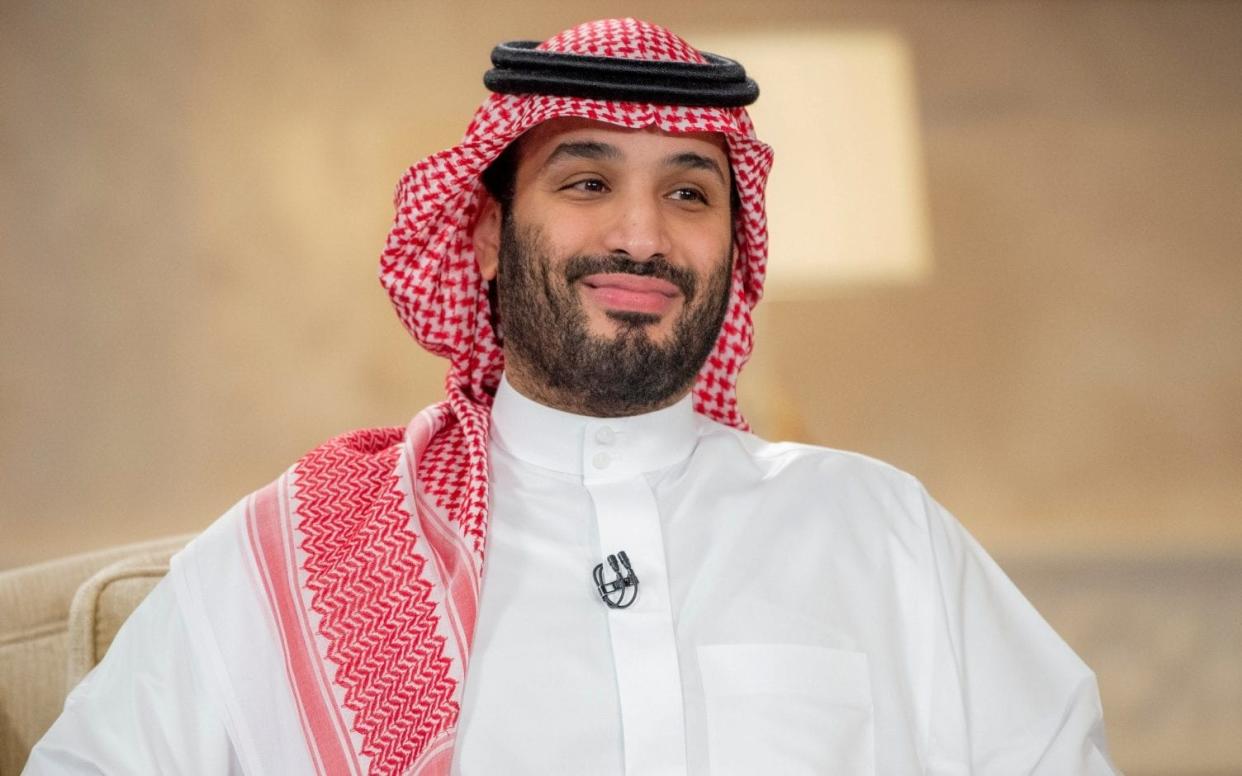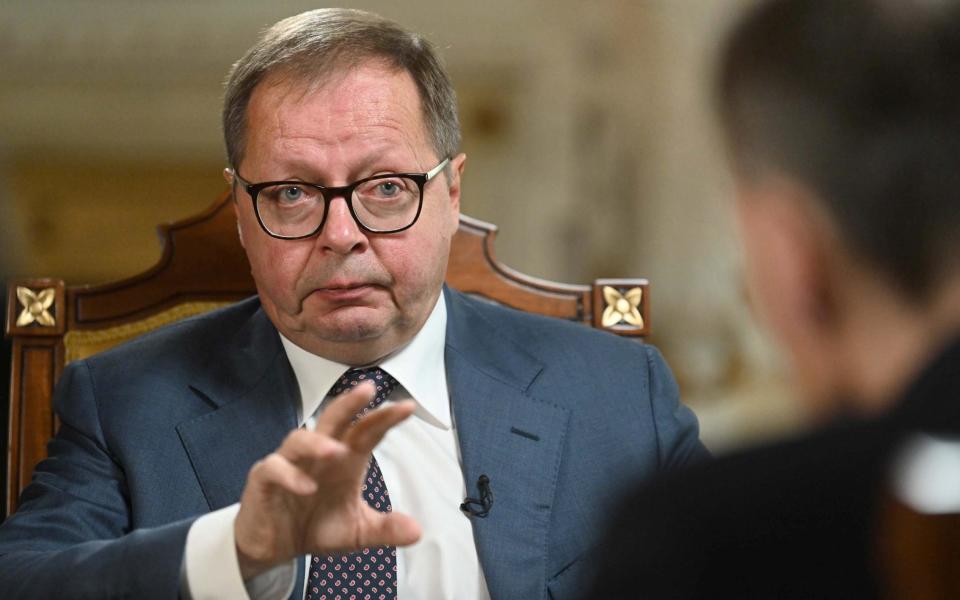Saudi Crown Prince may join leaders of China and Russia in missing crucial climate summit in Glasgow

- Oops!Something went wrong.Please try again later.
- Oops!Something went wrong.Please try again later.
Mohammed bin Salman could join Vladimir Putin and Xi Jinping in failing to appear at Cop26 next month, in a potential blow to Boris Johnson’s goals for the crucial climate summit.
The Saudi Crown Prince is among several world leaders who are understood not to have confirmed their attendance in Glasgow, despite the Prime Minister calling on the country to put forward “ambitious” targets during a call last week.
It comes just days after it was reported that President Xi of China is not expected to attend the conference and the Queen was overheard expressing her concern that it was unclear as to who would be present.
Meanwhile, the Russian ambassador to the UK on Sunday stated that no decision had been taken on whether Mr Putin would attend.

Whitehall sources have also acknowledged that there is a significant “question mark” over the Russian president.
It means that the leaders of three of the world’s most influential countries in regards to tackling climate change are still unaccounted for, despite intensive diplomatic efforts by the UK Government to make Cop26 a defining moment on the international stage.
Senior Government sources told The Telegraph they are still hopeful that the crown prince will attend the summit, but insisted that his presence or that of other notable world leaders was not essential to whether it succeeded.
They also pointed out that more than 100 world leaders had confirmed they would attend in-person talks, among them US President Joe Biden and the Australian premier, Scott Morrison.
One added that Saudi Arabia remained “very engaged” on climate talks, while another said that Beijing had committed to sending a high-level delegation and had been clear it wanted Cop26 to be a success.
However, despite all nations being asked to come forward with new targets, known as nationally determined contributions (NDCs), to cut emissions, China and Saudi Arabia have yet to make new commitments ahead of the summit.

Both countries, which are among the world’s biggest polluters, declined to submit updated pledges in time for the United Nations’ deadline.
Some in Whitehall now fear that Beijing could delay bringing forward new targets until next year when the next UN climate summit is due to take place in Africa.
While this has been challenged by others in Government, it is thought that China would have more of a geopolitical interest in doing so as it has invested hundreds of billions of pounds in the continent through its Belt and Road Initiative.
It comes after Andrei Kelin, Russia’s top diplomat in Britain, on Sunday confirmed that Mr Putin had not made a final decision on whether to attend.
Russia is taking climate change 'very seriously'
Speaking to the BBC’s Andrew Marr Show, he added: "But we will send a large delegation and believe me it will be a delegation that will consist of more than 200 people. The government will be represented at a very high level."
He defended Russia's efforts to decarbonise, saying: "We take the issue very seriously".
"The day before yesterday the president announced that we now have set a goal of reaching hydrocarbon neutrality by 2060.
"We are not very much in a hurry, we do not want to jump. We do not believe that putting artificial goals and not very much calculated goals will help in this situation," Mr Kelin added.
Challenged on 2060 being a later date than other countries are aiming for, he said: "It is not very much later date because the idea is to set up the goal of 2050."

